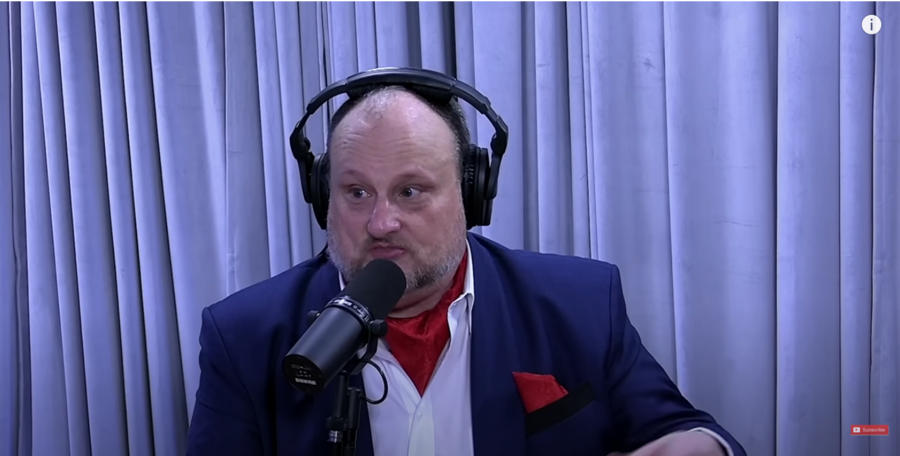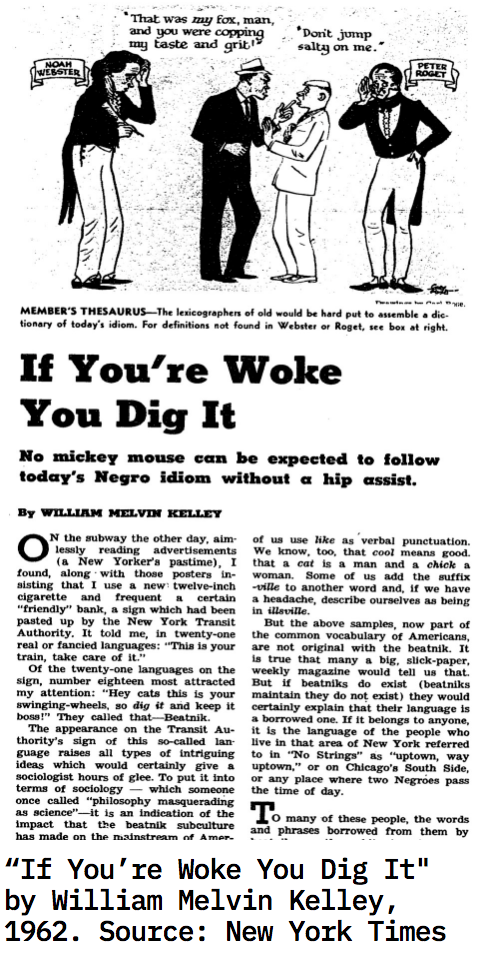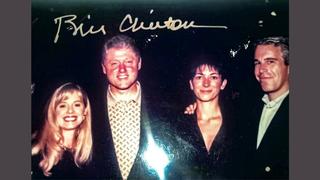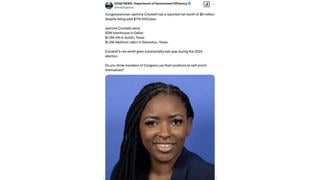
Did the expression "woke" originate from the phrase "willingly overlooking known evil"? No, that's not true: The term "stay woke" was first used in a 1938 song by blues musician Lead Belly about Black teenagers accused of raping white women, according to a linguistics professor. Usage of the expression "woke" to indicate awareness of injustices dates to the Black labor movements of the 1940s, according to the NAACP, but gained popularity in the 2010s as a word that signified Black empowerment.
The claim about the expression's origins appeared in a video (archived here) posted on YouTube on March 28, 2023, under the title "Jovan Pulitzer - Inventor QR Code | Election Expert | Early Cancer Cell Detection | Mscs Media *289." Podcaster Jovan Hutton Pulitzer is a conspiracy theorist whose claims Lead Stories has debunked before.
At the 1:13:06 mark in the video, Pulitzer asked his guest:
You know what the acronym of WOKE originally came from, right?
No.
Willingly Overlooking Known Evil.
This is what the video looked like on YouTube at the time of writing:
(Source: YouTube screenshot taken on Fri Apr 7 18:02:12 2023 UTC)
Pulitzer's comments begin at 1:13:06 in the video:
Linguistically, "woke" is an adjective, not an acronym. An acronym is a word, such as NATO, formed from the capital letters of its component words.
In a September 2017 article called, "Words We're Watching: Stay Woke," the Merriam-Webster Dictionary defined "woke" as:
'aware of and actively attentive to important societal facts and issues (especially issues of racial and social justice)'
Nicole Holliday, an assistant professor of linguistics at Pomona College, told Lead Stories via phone on April 7, 2023, that "this idea that it's an acronym is totally invented and it doesn't respect that African Americans have a whole language and lexicon that is independent of the white gaze." She explained the history of the expression:
We know the first attested use of woke is in 1938. It was in a song by the artist Lead Belly. The song was called 'Scottsboro Boys.' It's a true story where nine black boys were accused of raping two white women. It comes from awakened. It is the same verb as awake. So, the idea that it's some kind of weird acronym is ridiculous. And also also to me offensive.
She explained the original meaning of "woke" is "stay aware of systematic oppression" everywhere. "It means racism, homophobia, sexism, ableism. That's why it's so useful as a pejorative, too. Because it's underspecified. It means people on the right have started to use it as 'people I don't like,' or 'causes I don't like.'"
On August 26, 2022, the NAACP published an article ("THE EVOLUTION OF WOKE From Black Empowerment to Whitewashed Fear-Mongering") that explored the origins of the expression and provided a timeline of its usage in American English. The article dates the first use of the expression "woke" to 1940. It had no connection with "willingly overlooking known evil," but referred to Black Americans "waking up" to inequalities:
The Negro United Mine workers launched a strike in West Virginia against discriminatory pay. A Black union leader speaks about learning they were being paid less than their white counterparts, 'we were asleep. But we will stay woke from now on.'
The article explains:
THE BLACK LINEAGE OF WOKE
'To be woke is to be Black,' is how OkayPlayer Senior News and Culture Reporter Elijah Watson defined the Black American colloquialism, now broadly used derisively, when he embarked on a journey in 2017 to plot its origins. Ironically, his research first turned up a 1962 New York Times essay, 'If You're Woke You Dig It,' by the then Harlem-based writer William Melvin Kelley, who was highlighting the phenomenon of Black American slang being appropriated by white people who often missed or altogether distorted the words' original meanings, until the idioms were taken over, inevitably transformed, and ultimately abandoned by their original Black creators.
Here is a screenshot of The New York Times article:
(Source: NAACP screenshot taken on Fri Apr 7 18:36:33 2023 UTC)
According to the NAACP, in the 2010s the word was "appropriated and transformed into a negative descriptor for anything having to do with inclusivity and anti-discrimination." Merriam-Webster concurs, noting that it us used "by some as a general pejorative for anyone who is or appears to be politically left-leaning."
The Wall Street Journal published an article in 2017 that reported that the hashtag #staywoke became popular after the Black Lives Matter movement emerged following the 2013 acquittal of George Zimmerman in the Florida shooting death of Black teenager Trayvon Martin.
The article cited Pomona College linguistics fellow Holliday as defining "woke" as a "rallying cry for being conscious of social systems of black oppression."



















